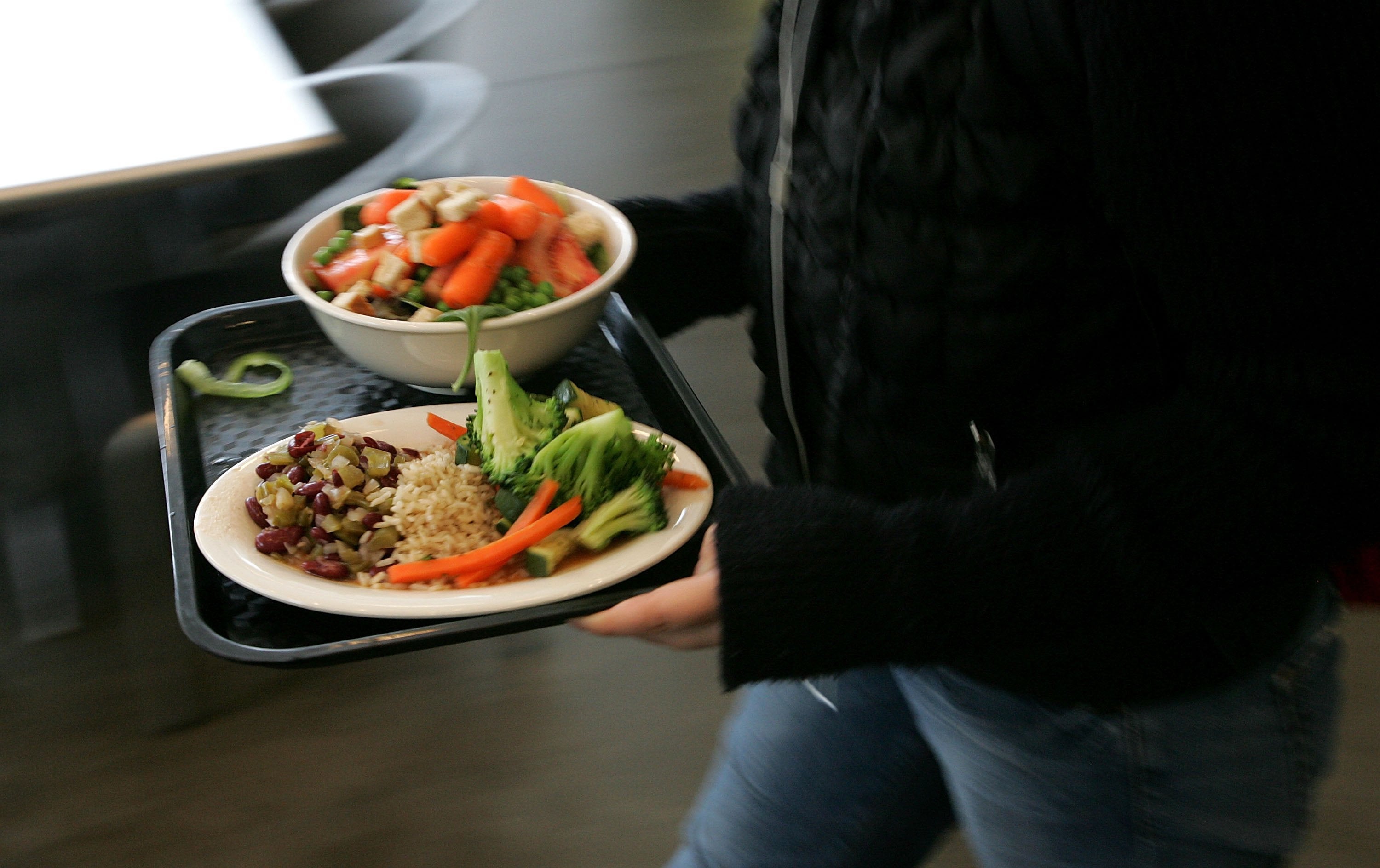Schools told to stock up on tinned food amid fears of shortages
Leading caterer writes to hundreds schools alerting them to problems with ‘sourcing, packing and distribution’

Your support helps us to tell the story
From reproductive rights to climate change to Big Tech, The Independent is on the ground when the story is developing. Whether it's investigating the financials of Elon Musk's pro-Trump PAC or producing our latest documentary, 'The A Word', which shines a light on the American women fighting for reproductive rights, we know how important it is to parse out the facts from the messaging.
At such a critical moment in US history, we need reporters on the ground. Your donation allows us to keep sending journalists to speak to both sides of the story.
The Independent is trusted by Americans across the entire political spectrum. And unlike many other quality news outlets, we choose not to lock Americans out of our reporting and analysis with paywalls. We believe quality journalism should be available to everyone, paid for by those who can afford it.
Your support makes all the difference.Schools have been urged to stock up on food ahead of anticipated shortages, with the government accused of “failing” some which have already faced disruption to supplies.
One of the largest canteen suppliers in the UK has written to school catering staff advising them they should stock up on frozen and tinned food to ensure that children are properly fed over the winter.
ISS supplies 450 schools – according to an email seen by ITV, the company said food availability for school canteens was being impacted by a shortage of HGV drivers as well as a lack of staff and import delays.
The email urged catering staff in schools to “top up on long life, dried, tinned and frozen products to ensure that there will always be some form of food available in a worse case scenario”.
In a statement, ISS said: “Our priority is always the schools, and the children, whose meals we provide.
“We would like to reassure parents and carers that our ability to continue to provide nutritious school meals is not being impacted by the well-publicised shortages of items that the UK is currently experiencing.”
It added: “Naturally, we have contingency plans in place to ensure that a good supply of meals remains in place. That contingency planning includes regular communication with our stakeholders during these challenging times for many schools across the country.”
Labour and the Lib Dems accused the government of not doing enough over supply chain issues.
Kate Green, Labour’s shadow education secretary, said ministers were “burying their heads in the sand” over problems with the supply chain, which have led to petrol pumps running dry and as well as empty food shelves.
Sir Ed Davey, the leader of the Liberal Democrats, has written to education secretary Nadhim Zahawi calling on him to urgently meet school caterers, school governors and local councillors in order to discuss the crisis.
He said his party had heard of “stark issues” with food shortages.
In his letter to Mr Zahawi, Sir Ed criticised the government and its “shocking abduction of leadership”.
He wrote: “Across the country, I have heard from Liberal Democrat councillors and schools about some stark issues with food disruption in our schools for our children.
“Parents have endured so much and worked so hard during the pandemic but it seems your government has failed them yet again. The least you can do is ensure a hot meal at their school for their children.
“For months you and your fellow ministers have been warned about the effects the shortage crisis could have on our economy and our everyday lives, now we see this reality coming true. For you to not have this on your radar is both surprising and a shocking abduction of leadership.”
Ms Green said that more HGV drivers must to be recruited and trained to help ease the supply issues. She added: “No school must be left without the food supplies it needs, and no child left going hungry.”
Paul Whiteman, general secretary of the NAHT headteachers union, said school leaders were "concerned" about the disruption some were facing with supply chain issues.
"We're not hearing widespread disruption from our members but certainly the government does need to take notice of the individual cases that are occurring so that the problem doesn't become more widespread,” he added.
A government spokesperson said there was “no evidence” to suggest widespread supply issues and schools had flexibility to substitute products if particular ingredients were not readily available.
They added: “We routinely consider contingency arrangements and expect schools and catering companies supplying them to do the same.
“In the event of any disruption to supply, we will work with councils and the sector to ensure warm, nutritious meals can continue to be provided.”
Additional reporting from PA
Join our commenting forum
Join thought-provoking conversations, follow other Independent readers and see their replies
Comments